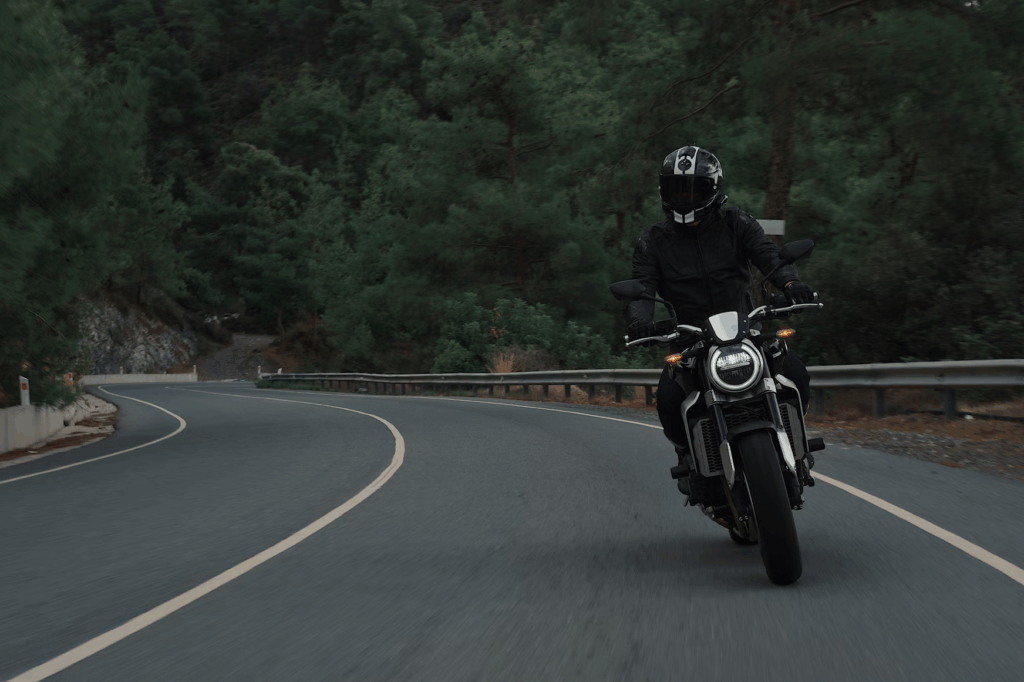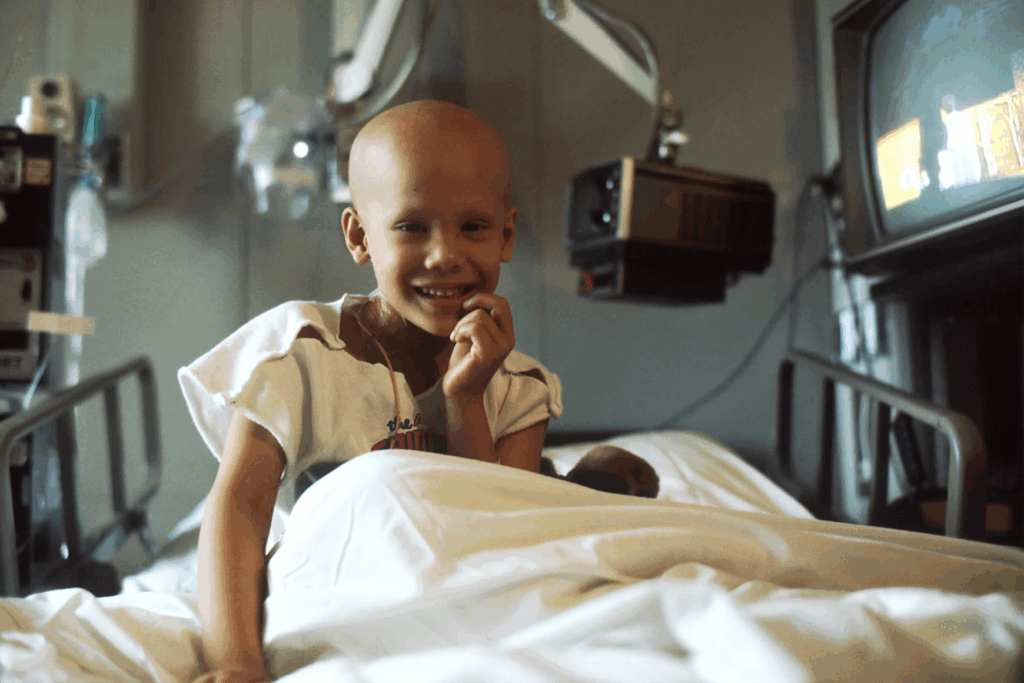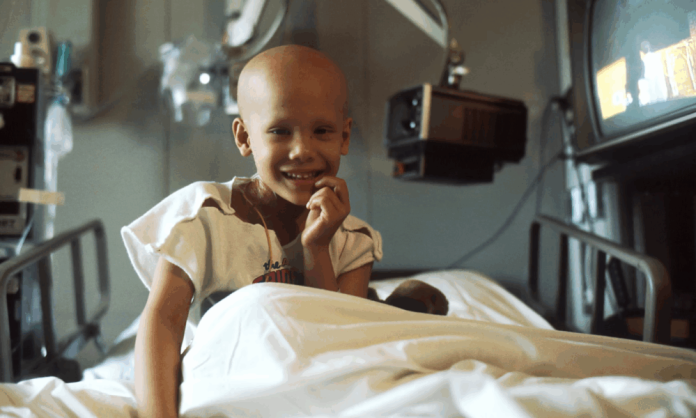My daughter, Emma, had a rare genetic disorder that no one could pronounce without sounding like they were reading it off a medical textbook. Before she was a week old, she had monitors taped to her chest, thin needles taped to her arms, and a team of doctors speaking in measured, professional tones about risks and treatment plans.
Her father left before she even took her first breath. He came to one ultrasound, heard the diagnosis, and disappeared two days later. My mother said he was scared. My sister said he was selfish. I didn’t say anything at all. I didn’t have the energy.
The first few years were a blur of hospital rooms and medication schedules and late-night emergency runs when her breathing changed. I learned how to read oxygen monitors the way other moms read bedtime stories. I learned how to insert feeding tubes with shaking hands and how to negotiate with insurance companies while heating formula with the other.

But Emma—my girl—never saw herself as sick. The world had to keep up with her.
She was bright, loud, curious. She collected stuffed animals and insisted each one had a personality. She loved purple glitter, chocolate pudding, and the stories I told her about a tiny hero-girl who faced dragons with nothing but bravery and love.
And she always smiled. Even after seventeen surgeries. Even after the doctors said, each time more gently than the last, that there was only so much they could do.
Then, when she was eight, the words came:
Stage four. Months. Maybe less.
I remember the doctor’s mouth moving. I remember the room dimming. I remember Emma swinging her legs off the exam table, too small feet in sparkly sneakers, asking if she could have a sticker from the nurse’s basket.
That night, at home, we sat in her tiny bedroom that smelled like lavender lotion and plastic from medical packaging. She lay on her pillow, thin arms curled around her unicorn plush, and she said it—soft, curious, not sad:
“Mommy, what’s it like to have a daddy?”
My mouth opened.
No sound came out.
I had answers for everything—pain levels, medication timings, insurance forms, dosage instructions. I knew how to hold her through fevers and distract her through needle sticks and keep her calm when machines beeped too loud.
But I did not know how to explain fatherhood to a child who had never been held in her father’s arms.
So I said the only thing I could:
“I don’t know, baby. But I’ll try to show you.”
And I meant it.
I didn’t know how. But I meant it.
Two weeks later, after a long day of labs and imaging and a doctor visit where we pretended to talk about spring but were really talking about endings, I pulled into a gas station off the highway. My hands were shaking from exhaustion. The kind that doesn’t just sit in your muscles—it settles in your bones. I leaned against the car and let the pump handle click automatically as I tried to breathe.
Emma, wrapped in her purple jacket, slid out of the car and looked around like she always did, scanning the world as if it were full of treasure she hadn’t discovered yet.
And that’s when she saw him.
He was impossible to miss.
A tall man, broad-shouldered, muscles visible even under worn denim and leather. His hair was long, pulled back loosely. His beard was thick. Tattoos covered his arms and crept up his neck. He leaned against a black motorcycle, smoking quietly, helmet hanging from his hand.
Everything about him said don’t come closer.
And Emma—my daughter who feared nothing but losing time—walked straight toward him.
“Emma!” I called, reaching out, but she didn’t stop.
The man saw her approaching. He stiffened, like he was preparing himself not to be unkind, but to be distant. People did that sometimes around sick children—they didn’t know where to put their eyes or their hands.
Emma stopped a few feet from him. She looked up—far up—and said in the gentlest voice I had ever heard from her:

“Hi. My name is Emma. Are you a daddy?”
The man froze.
Just… froze.
His cigarette fell from his fingers and hit the pavement.
I hurried to her side, breath uneven, trying to apologize. “I’m so sorry, she—she just—she’s very friendly, and we’ve had a long day, and—”
But he wasn’t looking at me.
He knelt down slowly, like the air had thickened around him, like the moment had weight.
He swallowed hard before he spoke.
“I used to be.”
Emma blinked. “What happened?”
His eyes went wet—instantly, helplessly.
“She got sick.”
Silence.
The world held still.
Emma nodded, like she understood something far older than eight years.
“My daddy didn’t stay when I got sick,” she said softly.
His face—God—his face shattered.
He reached out and—very gently—touched her hand.
And Emma, without hesitation, touched his right back.
Then her voice went even softer.
“Would you be my daddy today? Just today. I just want to know what it feels like.”
He inhaled, a trembling, broken sound.
Then he whispered:
“I’ll be your daddy for as long as you want.”
His name was Rick.
He rode a Harley. He lived in a small apartment on the outskirts of town. He worked with his hands—mostly motorcycles and old cars—and he had been living like a ghost since losing his daughter, Lily, five years earlier.
He didn’t step into our lives the way men do in movies—grand, sweeping gestures, music swelling.
He stepped in quietly.
The next day, he showed up at our door at 8 AM with a pink helmet sized for a child.
“We’re going to the park,” he said. “And maybe hot chocolate. And ice cream. And a library. And anywhere else she wants.”
Emma screamed with excitement.
And I laughed for the first time in months.
He didn’t replace her father.
He became her father.

He attended every medical appointment. He asked questions. He held her hand when IVs went in. He carried her when she got tired. He read to her every night—his deep voice turning princess stories into sagas that made her giggle.
He fixed her wheelchair when it creaked.
He braided her hair—badly, but proudly.
He stayed up with her on nights when pain made sleep impossible.
One evening he asked me, voice rough:
“Why didn’t he stay? Her father, I mean.”
I shook my head. “Fear comes in different shapes.”
He nodded.
“Love does too.”
I didn’t realize I was falling in love with him until I saw him asleep in the armchair beside her hospital bed, his hand wrapped around hers—not holding tight, just there, like a promise that didn’t need words.
Emma called him Daddy now.
Every time.
And he always answered.
The end didn’t come suddenly.
It came gently.
Softly.
Like a candle burning down to its final glow.
She woke up one morning and the light in her eyes was quieter. She didn’t want cartoons. She didn’t want music. She just wanted to lay against him, her head on his chest.
We sat together on the hospital bed. Sunlight filtered through blinds, thin and muted.
She whispered, barely audible:
“Daddy?”
His voice broke when he answered. “Yeah, baby?”
“Thank you for picking me.”
He leaned down, forehead against hers.
“No,” he whispered. “Thank you for finding me.”
Her last words were:
“Best daddy ever.”
His were:
“Best daughter. Always.”
She took one breath.
Then another.
Then none.
I don’t remember crying. I remember holding her hand until it cooled. I remember Rick’s hands shaking, his head bowed, his tears falling silently onto her blanket.
Grief didn’t come in waves.
It came in one whole ocean.

Funerals feel unreal. People bring casseroles, offer condolences, and speak softly, as if volume might offend grief.
But grief doesn’t notice volume.
Rick stood beside me the entire service.
He didn’t let go of my hand.
Not once.
When everyone left, he stayed.
He still stays.
Every Sunday morning, rain or shine, he rides his Harley to the cemetery. He brings her flowers—purple, always—and sits beside her stone, telling her about the week, the weather, the engine he rebuilt, the sunrise he saw.
Sometimes I go with him.
Sometimes I watch from the window of my car, giving them space.
He has never once missed a Sunday.
Not once.
People see tattoos, leather, motorcycles, rough hands, and they think they know a man.
But I saw the one who stepped in.
Who stayed.
Who loved without fear.
Emma didn’t leave this world without a father.
She had one.
A real one.
And in loving her, Rick found his way back into the world too.
Please let us know your thoughts and SHARE this story with your Friends and Family!

